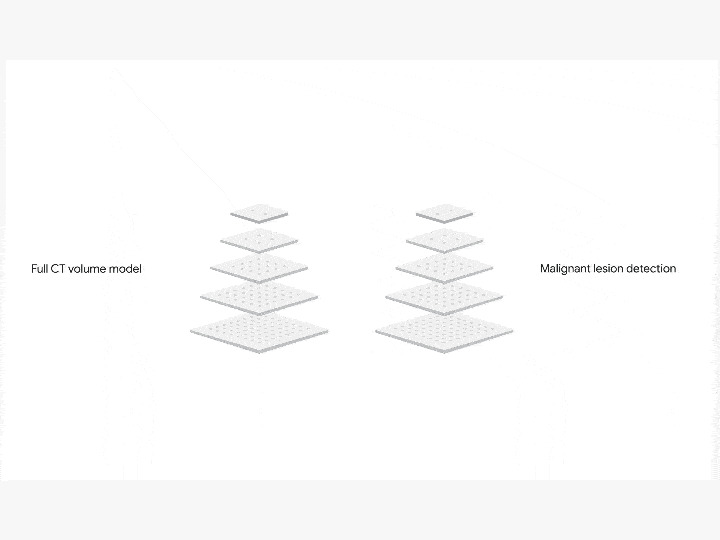Google Built A Lung Cancer Diagnosing AI And The Implications Are Huge
An innovative system to predict lung cancer could make a huge change in survival rates, with Google exploring how artificial intelligence could dramatically improve diagnosis rates. Despite advances in cancer treatment, lung cancer remains one of the most deadly diseases, not least because difficulty in identifying it among patients means it can often be too late to address.
Part of the problem is that, though screening techniques are known, they come with a huge challenge in terms of assessment. Low dose CT screening, for example, has been shown to help cut mortality rates because it can get people into treatment sooner. Unfortunately it is time- and expertise-intensive.
That's because it requires a radiologist to sift through the hundreds of 2D images that a CT scan produces. From those images, they need to identify a possible tumor, which can be tiny. Google's research, which it is publishing today in Nature Medicine, help with that.
The AI takes those 2D images and then combines them into a 3D volume. The model can then use that to create a lung cancer malignancy prediction, as well as "identify subtle malignant tissue in the lungs," Google says. Improving performance even more significantly, the system can take into account information gathered in previous scans, and compare any areas of possible tumor growth.

The rate of improvement for diagnoses is significant. Using a single CT scan, Google's model met – or exceeded – the performance of six human radiologists. In fact, Google's AI could spot 5-percent more cancer cases – and cut false-positive cases by more than 11-percent – compared to unassisted radiologists.
To train its AI, Google used almost 46,000 de-identified cast CT screening cases. Some of those had tumors present, some did not. A second dataset was then used to validate the results.
"Where prior computed tomography imaging was available, the model performance was on-par with the same radiologists," the study concludes. "This creates an opportunity to optimize the screening process via computer assistance and automation. While the vast majority of patients remain unscreened, we show the potential for deep learning models to increase the accuracy, consistency and adoption of lung cancer screening worldwide."
The impact on lung cancer survival rates could be significant. More than 1.7m people die from the disease each year, according to World Health Organization figures. Late-stage diagnosis is a key barrier to effective treatment.
"Despite the value of lung cancer screenings, only 2-4 percent of eligible patients in the U.S. are screened today," Google's Shravya Shetty, M.S., the technical lead on the project, points out. "This work demonstrates the potential for AI to increase both accuracy and consistency, which could help accelerate adoption of lung cancer screening worldwide."
Of course, the AI isn't quite ready for hospital duties yet. Next up, Google needs to see how it holds up in clinical practice, with Shetty and the team working with Google Cloud Healthcare and Life Sciences team to add the AI to the Cloud Healthcare API. Negotiations are already underway into building on the clinical validation with third-party partners.
